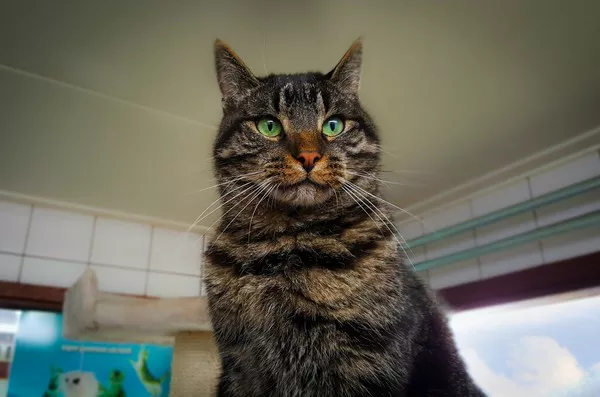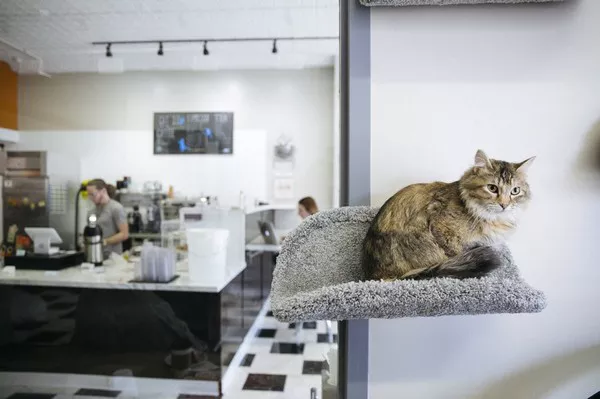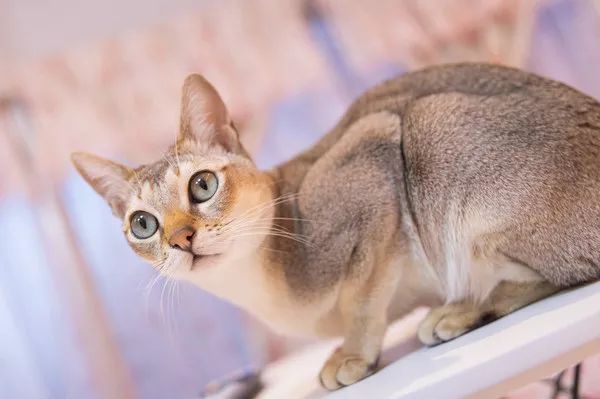Owning a cat comes with many responsibilities, and one of the most important is ensuring that your pet’s health is properly managed. While cats are often independent and low-maintenance compared to some other pets, regular healthcare is essential to maintain their well-being, prevent illness, and detect any health issues early on. One of the most common questions that prospective or current cat owners have is: How much does cat healthcare cost? The cost of caring for a cat’s health can vary significantly depending on factors like routine care, emergency services, and age-related treatments. Understanding these costs and planning for them is crucial to ensure that your feline companion stays healthy and happy for years to come.
In this article, we’ll break down the typical costs associated with cat healthcare, discuss the different types of veterinary services that may be required, and offer tips on how to manage these expenses effectively. We’ll also explore factors that influence cat health costs and the importance of regular veterinary visits.
Why Regular Veterinary Care is Important
Just like humans, cats require regular medical check-ups to ensure their health is maintained. While cats are skilled at hiding pain and illness, they can suffer from a variety of conditions that, if left untreated, can become severe. Regular veterinary care helps to detect these issues before they escalate, ensuring your cat remains healthy for longer. Key benefits of regular veterinary visits include:
Preventing Disease: Vaccinations, parasite prevention, and early screenings can protect your cat from common infectious diseases.
Early Detection: Regular exams help spot problems early, such as dental disease, arthritis, or heart conditions, when they are easier to treat.
Longevity and Quality of Life: Keeping up with preventive care can extend your cat’s life, and help it stay active and comfortable as it ages.
Mental and Emotional Well-Being: Just like any other pet, cats rely on us for care, love, and attention. Regular veterinary visits also contribute to your cat’s emotional health, offering you peace of mind.
Types of Services and Treatments That May Be Needed
Cats have a variety of healthcare needs over the course of their lives. These needs can range from routine check-ups and vaccinations to more specialized care, depending on the cat’s age, breed, and health conditions. Here is an overview of the main categories of services and treatments that may be needed for a cat’s health throughout its life.
Routine Veterinary Services
Routine veterinary care is the foundation of your cat’s healthcare. These regular check-ups allow for preventive treatments and help monitor your cat’s overall well-being. The cost for these services can add up over time, but they are essential for your cat’s health.
Annual Wellness Exams
One of the most important aspects of cat health is the annual wellness exam. These exams are typically priced between $50 and $150 per visit, depending on your location and the clinic’s pricing structure. During an annual wellness exam, the veterinarian will perform a physical examination, check for signs of illness, and discuss any behavioral or dietary concerns. Many clinics also offer routine blood work and other diagnostic tests as part of this visit. Blood work, in particular, is vital for detecting underlying issues such as kidney disease, diabetes, or liver problems, especially as your cat ages.
Vaccinations
Vaccinations are crucial for preventing a variety of infectious diseases that can affect your cat. Core vaccines include:
Rabies Vaccine: Typically required by law and generally costs between $15 and $25.
FVRCP Vaccine: This combination vaccine protects against feline viral rhinotracheitis, calicivirus, and panleukopenia. It is usually priced around $20 to $50 per injection.
In addition to core vaccines, there are optional vaccines for diseases like feline leukemia (FeLV) or feline immunodeficiency virus (FIV). These optional vaccines can cost anywhere from $30 to $70 each, depending on your veterinarian’s pricing and your cat’s risk factors.
Dental Care
Dental health is an often-overlooked aspect of cat health. Cats are prone to dental diseases such as gingivitis and periodontal disease, which can lead to pain, difficulty eating, and even organ damage if left untreated. Routine dental cleanings can cost between $200 and $500, depending on the complexity of the procedure and whether anesthesia is required. In some cases, if there are signs of severe dental disease, additional treatments such as tooth extractions may be necessary, which can drive the cost up.
Flea, Tick, and Parasite Prevention
Fleas, ticks, and intestinal parasites are common in cats, especially those that spend time outdoors. Preventive care is key to keeping these pests under control. Medications for flea and tick prevention range in price from $10 to $50 per month, depending on the type of medication (topical, oral, or collar). Deworming treatments can cost anywhere from $10 to $30 per dose.
Emergency and Specialty Care
Emergencies and specialized medical treatments are often more expensive than routine care, but they are sometimes necessary to save your cat’s life or improve its quality of life.
Emergency Visits: Emergency care is one of the most costly aspects of cat health. The cost of an emergency veterinary visit typically starts at $100 to $200, but it can easily rise to $500 or more if your cat requires extensive care. If your cat needs to be hospitalized, costs can quickly escalate to several thousand dollars, especially if surgeries or overnight stays are involved.
Specialist Consultations: Specialist consultations are necessary when your cat has a condition that requires expertise beyond what a general veterinarian can provide. Specialists in fields such as cardiology, dermatology, oncology, and neurology may charge anywhere from $100 to $250 per consultation. Further diagnostic testing, treatments, or surgeries could significantly increase costs.
Common Procedures and Treatments
There are several common procedures and treatments that may be necessary during your cat’s lifetime, including spaying, neutering, microchipping, and diagnostic testing.
Sterilization (Spaying/Neutering)
Spaying or neutering your cat is essential for preventing overpopulation and offering health benefits such as reducing the risk of certain cancers. The cost for spaying or neutering generally ranges from $50 to $200, depending on your location and whether you’re using a public clinic or a private veterinary office. Some low-cost clinics offer discounted procedures, especially for younger cats or those adopted from shelters.
Microchipping
Microchipping is a one-time procedure that helps reunite lost cats with their owners. The procedure is relatively inexpensive, typically costing around $40 to $60. This small investment provides peace of mind, particularly for indoor/outdoor cats or those at risk of becoming lost.
Diagnostic Tests
If your cat is showing symptoms of illness or discomfort, your veterinarian may recommend diagnostic tests such as blood tests, X-rays, or ultrasounds. These tests can cost anywhere from $50 to $500 or more, depending on the type of test and complexity of the situation. Diagnostic procedures are often required for conditions like diabetes, kidney disease, or cancer.
Factors Affecting Costs
The cost of cat healthcare is not fixed and can vary significantly depending on several factors.
Location
The cost of veterinary care can differ based on your geographic location. For example, veterinary services in urban areas may be more expensive than in rural locations. Likewise, costs may vary based on regional pricing and availability of veterinary professionals.
Clinic Type
The type of clinic your cat visits also impacts the cost of care. General veterinary clinics typically charge less than emergency or specialty clinics. If your cat needs to visit an emergency clinic or see a specialist, the costs may be substantially higher.
Cat’s Age and Health
The age and health status of your cat play a critical role in determining the cost of healthcare. Younger, healthy cats may require only basic vaccinations and routine check-ups, while older cats may need more frequent exams, blood work, and treatments for age-related conditions. Cats with chronic conditions or those requiring surgery can incur much higher veterinary expenses.
Tips for Managing Costs
Although the cost of cat healthcare can be significant, there are several strategies you can use to manage expenses effectively.
Pet Insurance
One of the most effective ways to manage veterinary costs is by purchasing pet insurance. Pet insurance plans typically cover a wide range of services, including routine care, emergency visits, surgeries, and diagnostic tests. Premiums can range from $20 to $50 per month, depending on the plan and the age and breed of your cat. Although there are out-of-pocket costs, pet insurance can save you significant money in the event of an unexpected illness or emergency.
Budgeting
Properly budgeting for your cat’s healthcare can help reduce the financial burden. Set aside a certain amount of money each month or year for routine check-ups, medications, and potential emergencies. It’s better to prepare in advance for these costs rather than face financial strain when an emergency arises.
Preventive Care
Investing in preventive care, such as vaccinations, parasite control, and regular wellness exams, is essential to maintaining your cat’s long-term health. Preventing illness is always less expensive than treating it, and routine care can help catch potential health problems before they become serious and costly.
Conclusion
Caring for your cat’s health is an ongoing responsibility that requires both time and financial investment. From routine wellness exams and vaccinations to emergency visits and specialty care, the costs associated with keeping your cat healthy can add up over time. By budgeting, purchasing pet insurance, and prioritizing preventive care, you can manage these costs while ensuring your cat leads a long and healthy life. Regular veterinary visits and proper health maintenance are critical to your cat’s well-being, and investing in its health is one of the best decisions you can make as a responsible pet owner.
Related Topics



























